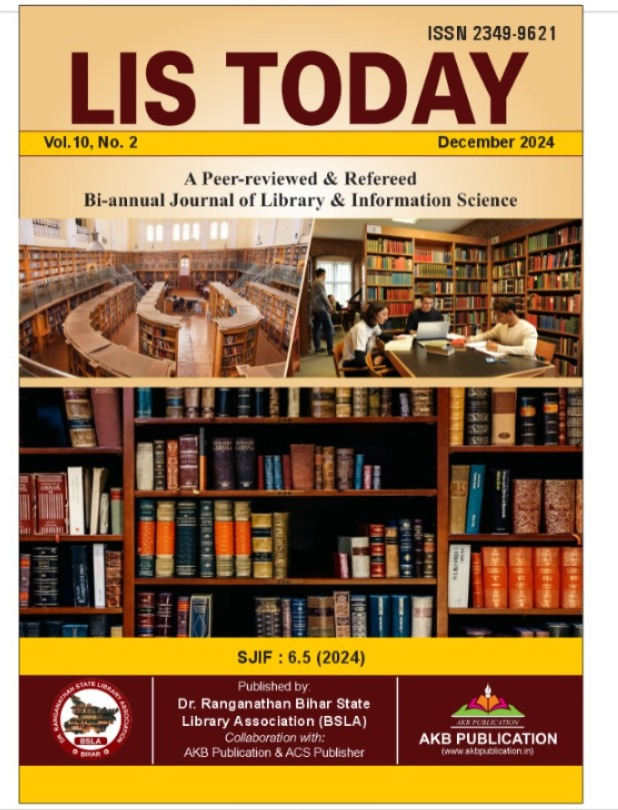Awareness And Use of e-Resources among Research Scholars of Social Science Faculties in Selected Universities of Bihar: A Survey
DOI:
https://doi.org/10.48165/lt.2025.11.1.7Keywords:
E-Resources, Electronic Resources, Research Scholars, Social science, Universities of BiharAbstract
Purpose: The increasing use of electronic resources (e-resources) has transformed the landscape of academic research and knowledge dissemination and it has become necessary for library professionals to study its utility. The aim of this study is to examine the awareness and usage of e-resources among research scholars in the Faculty of Social Sciences in universities of the state of Bihar. Methodology: This study employed a mixed-methods approach, consisting of a survey and semi-structured interviews, to collect data from a sample of 110 research scholars from various social science disciplines across five government universities in the state of Bihar. Findings: The findings indicate that the level of awareness about e-resources among research scholars is very high, and most respondents regularly use these resources for their research work. However, the study also highlights the need for better access, training and institutional support to further improve the effective use of e-resources. The findings reveal a significant correlation between awareness levels and the effective use of e-resources, highlighting the need for improved training and access. Originality: This is the first research of its kind on the use and awareness of e-resources by research scholars of the Faculty of Social Sciences of universities in Bihar. These results provide valuable insights for academic institutions in Bihar to develop targeted strategies and policies that promote the integration of e-resources in the research and academic activities of their stakeholders.
References
Bhardwaj, R. (2020). Emerging trends in e-resources and their impact on social science research. International Journal of Information Studies, 12(2), 45–52.
Bhatia, A., & Sharma, S. (2017). Usage patterns of eBooks in academic libraries: A study of selected universities in India. Journal of Library and Information Services in Distance Learning, 11(1), 3–15.
Cloete, L. (2017). The digital divide: Access to electronic resources among researchers in developing countries. Library Management, 38(6), 332–344.
Deng, H. (2010). Emerging patterns and trends in utilizing electronic resources in a higher education environment: An empirical analysis. New Library World, 111(3/4), 87–103.
Jubb, M. (2019). Navigating the information landscape: A study of researchers’ experiences with digital resources. Journal of Information Science, 45(2), 167–179.
Kaur, R., & Kaur, J. (2018). Impact of electronic resources on research quality in social sciences: A study of university scholars. International Journal of Library and Information Studies, 8(3), 16–24.
Kumar, R., & Singh, P. (2020). The role of digital resources in academic research: A study of Indian universities. Journal of Library & Information Science, 15(2), 45–58.
Mseleku, Z. (2017). Information overload: A challenge for researchers in the digital age. Library Philosophy and Practice, 2017, 1–12.
Sinha, M. K., Singha, G., & Sinha, B. (2011). Usage of electronic resources available under UGC-INFONET digital library consortium by Assam University library users. In CALIBER 2011: Goa [Conference proceeding]. INFLIBNET Centre. Retrieved from https://ir.inflibnet.ac.in/bitstream/1944/1642/1/50.pdf
Sharma, A. (2021). E-resources in higher education: Awareness and usage among scholars. International Journal of Educational Technology, 8(3), 112–125.
Tenopir, C., King, D. W., & Edwards, R. (2013). Electronic resources and their impact on research practices. Library & Information Science Research, 35(3), 187–197.

